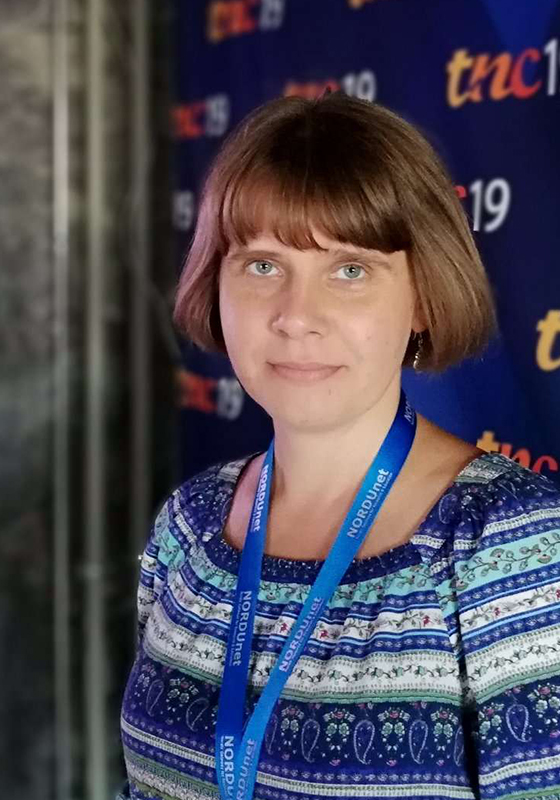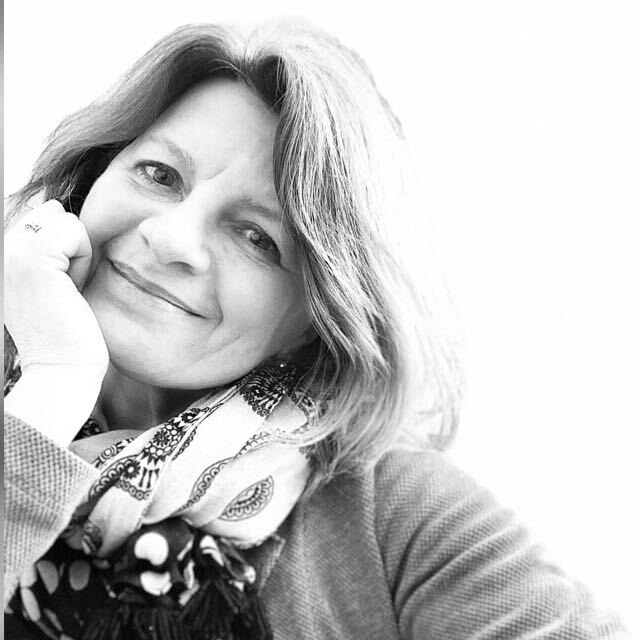For the 2023 GÉANT Women in STEM campaign we interviewed the physicist Dr Elena Hajdeu-Chicarosh from Moldova who, in November 2022, was awarded the Diploma of Gratitude and Appreciation by the Government of the Republic of Moldova for her activities in the field of research and innovation.
How did you come to this field?
My personal circumstances and the people I have had by my side in different stages of my life made me love the field of research, engineering and more recently IT, and help me make good progress in these disciplines. I owe to my grandmother my inclination towards exact sciences and the fact that I was able to master them easily during my school years. A physics and mathematics teacher for over 35 years, she was always showing me, my sister and my brother various physics experiments, explaining different phenomena and their causes. I have grown surrounded by physics textbooks that my grandmother brought home and read them to us like fairy tales. As a result, also my brother and sister are successfully working in technical fields. So, when the time came to choose a profession I applied to the Faculty of Physics and Engineering of the Moldova State University (MSU), and chose the subject of Physics and Semiconductor Technology. There I had very dedicated teachers who were enthusiastic about what they did. They helped me to grow and always encouraged me. Later, they also pointed me in the direction of Professor Ernest Arushanov, whose research team I joined at the Institute of Applied Physics and started to work studying new materials for photovoltaics and photonics. So, thanks to the support and guidance of my colleagues, I defended my PhD thesis in 2018. I am still working with the same team as a Senior Researcher. I coordinate different research projects and together we continue to contribute to scientific progress. In addition to the research activity, I also learned programming – and I am currently working in IT with the company Endava. I also teach physics to master students from the faculty of MSU where I graduated 9 years ago, information is useful when is disseminated, and not when we keep it only for ourselves!
What does your day-to-day work look like?
For me scientific research is team-work, first of all. The research teams I work with are made up of colleagues from my university, but also from other research centres in Moldova and abroad. This gives us the opportunity to meet new people, exchange experience, research methods and technologies, as well as to travel! Therefore, a wider choice of research equipment becomes more easily accessible through collaboration, and the results improve too.
Scientific work involves different kinds of activities. In a given period of time we carry out experiments, change their conditions, make optimisations, and repeat. Then we analyse the results, brainstorm to interpret them, study literature and databases, set up a model that describes the observed behaviour, work on publishing the results, participate in scientific conferences, manage the projects we are involved in, the work is very dynamic and you can’t get bored. This teaches us to be adaptable, to collaborate and communicate effectively in order to solve complex problems. I believe that once you master physics – you can master anything else, the other way around would be difficult. I am happy with my professional choice. Besides the prestige – it always forces you to progress, to be in step with information and technologies that are evolving very fast.
What are you most proud of?
I owe all of my professional achievements to my team from the Institute of Applied Physics. In recent years together we successfully carried out several advanced studies of new materials for photovoltaics and other technological applications. For example, we managed to clarify a set of aspects of a whole series of kesterite-type materials, which could play a big part in next-generation of solar cells. These could help make solar cells more efficient, flexible, containing less expensive and less toxic materials, and have lower production costs. The first and the second generation of photovoltaic devices have either reached their full potential in terms of efficiency (for example, silicon-based ones) or have proven to be unsuitable under certain conditions and no longer meet the increasingly complex needs of modern society. This is a very interesting topic, especially as photovoltaics has again returned to the spotlight under the current energy and environmental crises. Thus, fundamental research for different materials with a potential for use in photovoltaic structures is very important to understand the properties that influence the process of converting solar energy into electricity and how we can control these properties in order to obtain an efficient photovoltaic device. The results of the studies I participated in have been published in many impactful scientific articles, and of course, more work still needs to be done in this direction – but in science every piece of the puzzle is important.
I think that my scholarships, awards and diplomas speak best about the results of my work. Among the most important ones I would like to mention the Scholarship of the World Federation of Scientists and the Research Fellowship “Mircea Ciuhrii” (2017), the Annual Award of the Institute of Applied Physics for Young Researchers (2017), the Diploma of Gratitude and Appreciation for the activity in the framework of H2020 Programme projects from the Ministry of Education, Culture and Research of the Republic of Moldova (2018) and, most recently – the Diploma of Gratitude and Appreciation for the activity in the field of research and innovation on the occasion of the World Science Day from the Government of the Republic of Moldova (2022).
Can you tell us about your challenges and experience as a mum with a career in STEM?
It’s quite difficult to balance work and personal life, especially when the day is only 24 hours long – but it’s not impossible. I’m a very active and organised person, and I’m also lucky to have a family that always encourages and supports me in all my aspirations. Especially my husband, who I met in my first year at the university, he also was a student of the same Faculty of Physics and Engineering. This helps me to successfully carry out my role as a mother of a 4 year old daughter (as ambitious and energetic as I am), as a wife and as a professional. There are moments when I have to prioritise one role over another, but with the support of those around me I manage to compensate in time.
I like to enjoy my personal time and try to do it on a regular basis. This is for my soul! I read, go to the gym, work in the garden, try a new recipe, learn something new. This way I recharge my batteries, and then come back with the desire to get involved in other activities. Next, there is the time spent with my little girl and my family. It’s about attending dance classes and other sports activities, walks in the park, games, trips, visiting friends and family. I strive to be as involved as possible and be a good example for the future woman we are raising. In our family, both my husband and I have equal obligations to raise and educate our little girl. Somehow we have tacitly aligned ourselves in this regard, and we are a good team. That’s why I was able to write and defend my PhD thesis in the same year when my little girl was born. She was my main motivator, critic and mentor in that process. There were times when I wanted to quit – but the ambition was too great. That’s when I understood that children are not an excuse for failing to affirm yourself professionally. It just takes more patience, willpower and perseverance. Also, with the support of my family and colleagues I didn’t need to take much of a break after the birth of my little girl. I was working for short intervals and managed not to put my professional activities on hold. Whenever possible, I tend to turn my work trips abroad into holidays with my young family. This way we enjoy new places and share experiences together, whilst fulfilling my professional duties.
At the moment, my scientific and IT work also involves being a team manager: exciting and challenging at the same time. It is less about technical skills and more about communication, cooperation, prioritisation, emotional intelligence, power of persuasion and time management. I guess I am doing well and I also owe it to the wonderful people in my teams. I’m still learning and I am always trying to improve and develop my skills.
The gender gap in STEM used to be quite pronounced, but lately I have noticed that the boundaries are getting more blurred. Anyway, science and technology are not gender specific, they are for enthusiastic, dedicated and curious people. The teams I work with are still mostly made up of men – but my work hasn’t been negatively impacted by this. It is all about attitude!
I’m glad that many programmes have started to encourage girls and women to choose a technical profession, and that more women are succeeding in affirming themselves. We do have one advantage though – the ability to multitask which personally helps me a lot in all areas of life. So, I recommend to women to be brave in choosing a profession in the STEM fields, to have more self-confidence and not to be distracted by stereotypes and dogmas that no longer fit in modern society.



